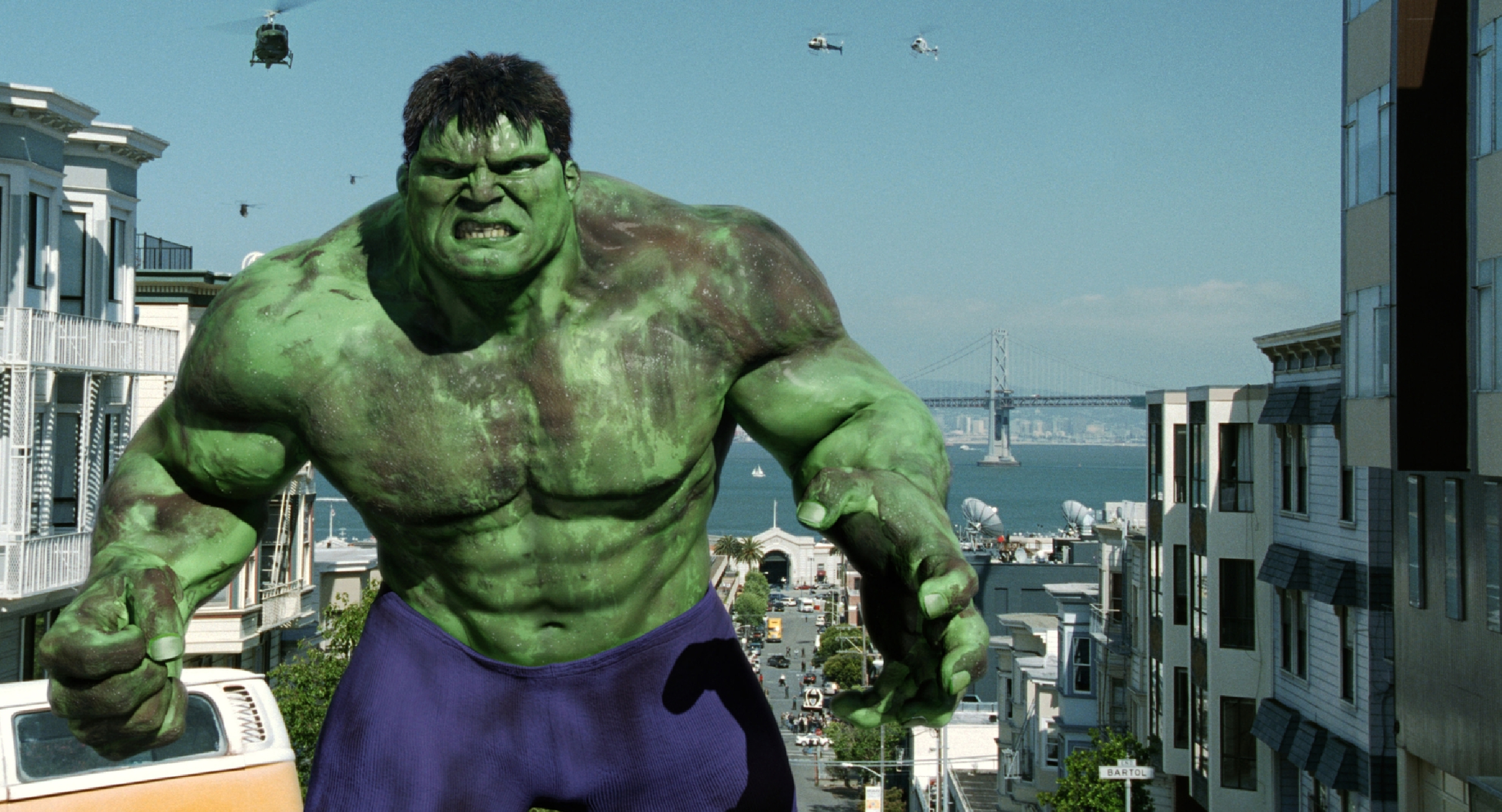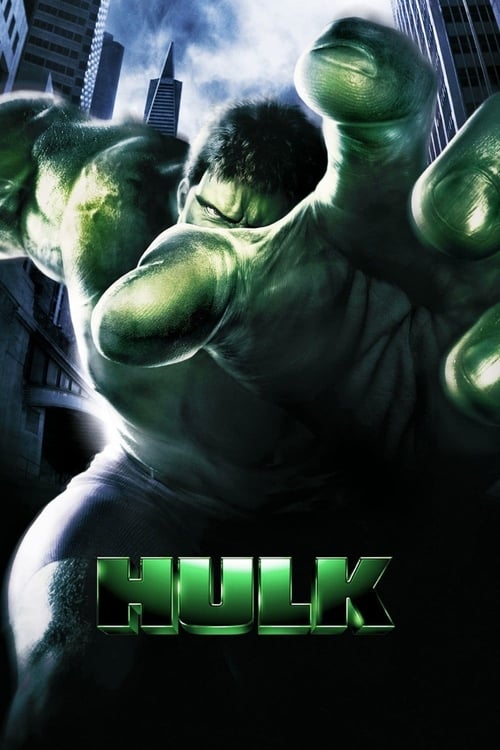Bruce Banner, a genetics researcher with a tragic past, suffers massive radiation exposure in his laboratory that causes him to transform into a raging green monster when he gets angry.
Hulk – Film Review
Published August 26, 2023

One of the most glaring issues with Hulk lies in its narrative structure. The film attempts to blend a complex father-son relationship drama with the traditional superhero origin story, but the execution feels disjointed. The movie spends a significant amount of time exploring Bruce Banner’s (Eric Bana) traumatic childhood memories and his strained relationship with his father David Banner (Nick Nolte), an angle that aims to delve into the psychological aspects of the character. While the intention is admirable, the result is a convoluted mess that detracts from the superhero narrative.
Character development also suffers as a result of this narrative imbalance. Bruce Banner’s transformation into the Hulk is an intriguing concept, symbolizing repressed anger and inner turmoil. However, the film fails to effectively portray the gradual unraveling of Bruce’s emotions and his subsequent transformation. This lack of emotional depth hampers the audience’s ability to connect with the character on a meaningful level.
Hulk struggles with pacing issues, particularly in its first half. The extensive exploration of Bruce’s childhood memories, coupled with scientific jargon and philosophical discussions, bogs down the movie’s momentum. It’s only in the latter half that the film attempts to inject some adrenaline-pumping action sequences, which, while visually engaging, feel detached from the earlier, slower buildup.
The editing exacerbates the pacing problems. Rapid cuts and frenetic transitions attempt to mirror the volatile emotional state of the characters, but instead, they contribute to a sense of visual confusion. The action sequences, while ambitious, often become a dizzying array of rapid shots, making it difficult to fully grasp the scale and impact of the Hulk’s actions.
Ang Lee’s decision to experiment with the visual style of Hulk is both commendable and questionable. The film incorporates comic book-inspired split screens and panel-like compositions to emulate the comic book experience, but the execution isn’t consistently successful. While these stylistic choices occasionally result in striking visuals, they can also feel distracting and disjointed, further contributing to the film’s lack of visual coherence.
The CGI used to bring the Hulk to life is a mixed bag. The transformation sequences, where Bruce morphs into the Hulk, showcase impressive attention to detail and innovative use of computer-generated effects. However, the actual portrayal of the Hulk during action sequences lacks a sense of weight and realism. His interactions with the environment often appear awkward and cartoonish, diminishing the impact of the battles.
The cast of Hulk delivers performances that reflect the film’s overall unevenness. Eric Bana as Bruce Banner showcases moments of emotional depth, particularly in his interactions with Jennifer Connelly‘s character, Betty Ross. However, the script often leaves him grappling with clunky dialogue that undermines his efforts.
Nick Nolte’s portrayal of David Banner is a standout, conveying the character’s complexity and desperation effectively. Nolte brings a gravitas to the role that adds much-needed weight to the narrative. Unfortunately, the film doesn’t fully capitalize on his talent, relegating his character to a subplot that feels disconnected from the main storyline.
Ang Lee’s Hulk is a bold attempt to reshape the superhero genre by infusing psychological depth and visual experimentation. However, its narrative disarray, pacing problems, and inconsistent visual style prevent it from reaching its full potential. The film’s ambition is evident, but its execution leaves much to be desired. While Hulk may have paved the way for future superhero films to explore complex character dynamics, it remains a cautionary tale of the importance of balance and cohesion in storytelling. With disjointed narrative elements and a struggle to find its identity, Hulk ultimately falls short of leaving a lasting impact.
